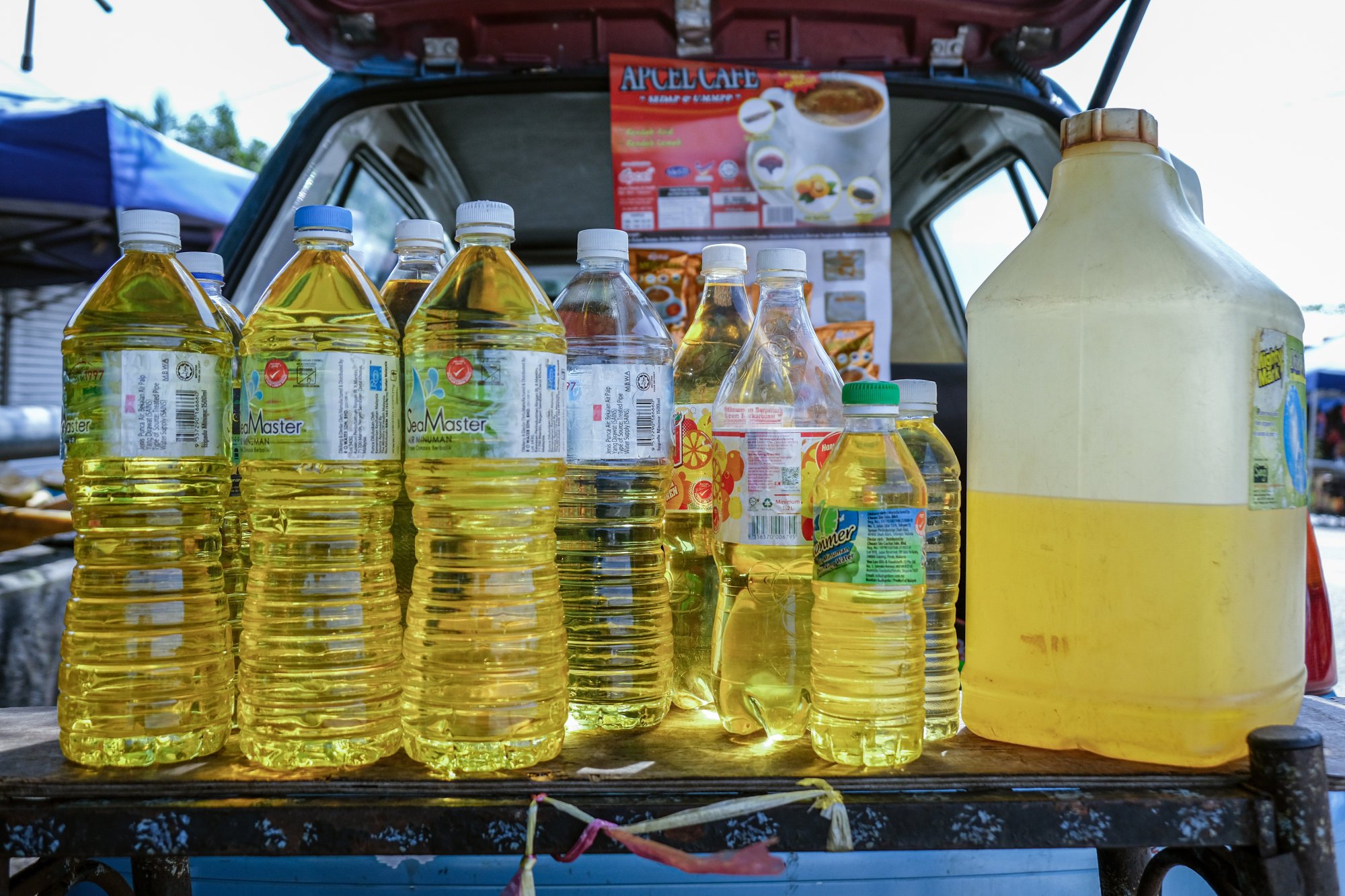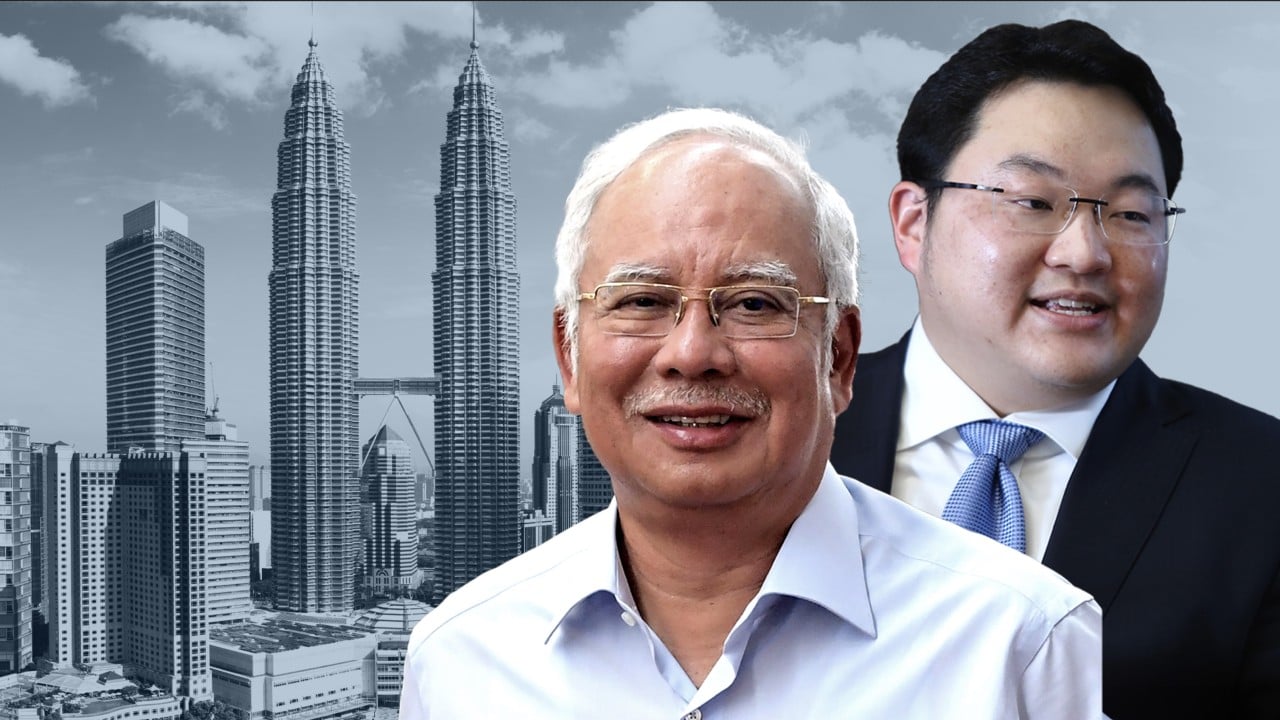Fowl business? Malaysians face higher chicken prices as PM Anwar eyes subsidy cuts
[ad_1]
Regular customers of nasi lemak vendor Soraya have had to swallow a 15 per cent price hike for the fried chicken she dishes out at a street stall in Kuala Lumpur in recent weeks, as they bear the higher cost following the end of an US$800 million state subsidy for poultry and eggs.
“The price of [fresh] chicken parts has been high for a while now, and we can’t keep our prices down any more,” said Soraya, 41, an Indonesian migrant who runs her stall in the city’s suburbs with her Malaysian husband.
On November 1, the government removed a blanket subsidy and price control regime for fresh whole chickens and eggs, which it said had cost 3.8 billion ringgit since its introduction last year.
Malaysians to pay more for staples as weak ringgit enters ‘uncharted territory’
Malaysians to pay more for staples as weak ringgit enters ‘uncharted territory’
But the move carries political risks, as it means small businesses face impossibly narrow margins – which customers soon discover when it comes to paying.
Soraya’s customers mostly pay the extra without complaint, but she felt uncomfortable having to raise the price to 10 ringgit (US$2.14) a portion since the start of the month.
Prices for whole chickens have so far remained stable, but in a sign of what may be to come some supermarkets are selling legs of the poultry for as much as 27 ringgit a kilogram, nearly twice as much as the Tuesday figure listed on the government’s PriceCatcher app, which tracks nationwide daily price fluctuations.
To keep prices and profiteering in check, the government said it will monitor the market while also implementing targeted price interventions and discounted sales of essential goods under its Rahmah aid programme, which is aimed at helping the country’s low-wage earners.
Anwar said the current blanket subsidy programme benefited even those who can cope with price rises, hence there was a need for policy adjustments.
“I am not anti-super-rich, but we must be fair to the vulnerable and the needy,” Anwar said in a Facebook post after unveiling his targeted subsidy plan in his 2024 budget.
Political risks
Subsidies have been a favoured tool by successive Malaysian administrations as a sop to voters. The former ruling Umno party ladled generous subsidies onto its Malay-Muslim heartlands, which critics said shored up its popularity at the expense of the economy.
As such, efforts to rationalise subsidies risk incurring strong public opposition.
‘Quaking in their boots’: Malaysians, Indonesians ditch brands over war in Gaza
‘Quaking in their boots’: Malaysians, Indonesians ditch brands over war in Gaza
Headline inflation eased from a high of 4.7 per cent last August to 2 per cent over the corresponding period this year. But it remained elevated at 5.1 per cent in the food and non-alcoholic beverages sector, a key pain point for poorer households.
“There’s no fish, vegetables are expensive … chicken prices are sure to rise because a lot of Malays like to eat [chicken],” said Facebook user Nazir Rahman in a response to a live feed by Agriculture Minister Mohamad Sabu announcing the removal of chicken subsidies on October 30.
Malaysia has big EV ambitions. To get there, it wants to liberalise markets
Malaysia has big EV ambitions. To get there, it wants to liberalise markets
The government may be able to skirt criticism if it ensures state aid reaches lower-income groups whose ranks have been hit by mass lay-offs and pay reductions during a pandemic-induced economic slowdown, said James Chin, a political analyst and director of the Asia Institute at the University of Tasmania.
“The big political fallout will only come if there is a sudden spike in prices [of basic essentials],” he told This Week in Asia.
Anwar’s administration is still likely to face flak when it hacks back fuel subsidies, which accounted for nearly three-quarters of the total subsidy bill for 2022, according to government data.

Anwar has yet to set a deadline for when the government will rationalise fuel subsidies.
The money saved from slashing subsidies could go to more urgent developmental needs such as in public infrastructure, healthcare and education, said Hafidzi Razali, an associate director with political risk consultancy BowerGroupAsia.
But the government has a narrowing window of opportunity as it will not want to face the wrath of voters with subsidy cuts fresh in the memory.
“It all boils down to political will. [Subsidies] can be phased out accordingly, but the end goal needs to be near,” Hafidzi said.
[ad_2]
Source link


